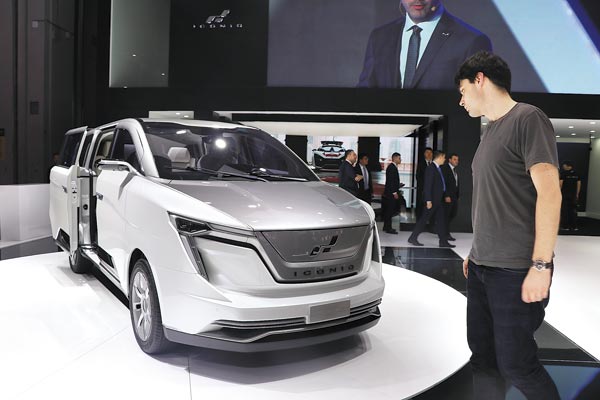China likely to halt new electric vehicle permits on glut concern
 |
|
A visitor looks at an Iconiq Seven multi-purpose vehicle at the Shanghai auto show on April 19, 2017. [Photo provided to China Daily] |
The country used to attract new comers by lowering threshold but regulators have realized that some companies weren't up to the standard, an unnamed executive of a new energy car maker told the outlet.
Over the past two years or so, a total of 15 new companies have been granted the production permit, taking the new energy cars to be made by 2020 to 1.17 million, equivalent to 58 percent of 2 million as planned in the medium and long-term for China's automotive industry.
As a rule of thumb, existing vehicle manufacturers can skip applying for the new energy car production permit.
Despite the growing interest in car-making among Chinese internet companies, none of them has been granted permit so far, according to the Paper.
Experts said that it is necessary to put a temporary stop on bringing more players into the new energy car-making sector, with glut risks accumulating.
For those 15 companies which have been granted the permit, there's still a long way to go before they are able to enter the market. Some may fail in the reassessment, Xinhua reported citing scholars at Society of Automotive Engineers of China.
Though the industry watchdog hasn't specified the upper limit on the new energy vehicle permits, 10 to 15 would well match the market needs, Gao Heng, a senior scholar of the institute, said.
Last month, the output of new energy cars reached 47,000, an increase of 27 percent year-on-year, data from the National Bureau of Statistics showed. The industry manufactured 141,000 cars in total in the first five months.
Tan Xinyu contributed to this story.









